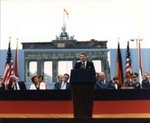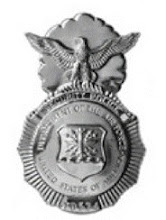I posted the two Dennis Miller cuts in response to a question in my classes on Thursday. We were discussing the Compromise of 1850 and the debate about sectionalism in antebellum America. In that discussion we were studying three of the giants of the Senate during the period leading to the Civil War. These were the statesmen who were trying to keep a lid on the boiling pot of sectionalism.
Henry Clay of Kentucky, was part of three major compromises. He is the consummate statesmen and probably the most important politician who was not president. In 1820, Missouri asked to come into the country as a slave state. At that time balance in Senatorial representation kept the peace between the north and the south. Recognizing the worry of one side or the other gaining the majority, Clay engineered the Missouri Compromise, whereby the southern border of Missouri, 36 degrees, 30', would be the dividing line between slave and free states. Additionally, when states were admitted, one slave state would be admitted along with one free state to maintain that balance. Clay was instrumental in the compromise that ended the Nullification Crisis of 1832-33, and the Compromise of 1850. All three of these included the element of secession. Clay recognized that this threatened the union and used his influence to compromise.
John C. Calhoun, southern activist, Senator, Vice President is another of the Senatorial Giants. He was a slaveholder and defended the institution. He also was a state's rights believer. In 1828, a tariff was passed on manufactured goods that landed with both feet on southern agrarians. Calhoun led the Nullification Crisis of 1832-33. In short, the "nullies" harkened back to the Virginia and Kentucky Resolutions of 1798, written by James Madison and Thomas Jefferson respectively, in answer to the Alien and Sedition Acts, that made it illegal the criticize the government, in violation of the First Amendment. As Jefferson has said, "When people fear the government that's tyranny, when government fears the people that's liberty." The theory in those documents was that government existed solely to protect the rights of the people. When the government does not protects those rights, it is the right of the people to nullify, or refuse to obey, that law.
Calhoun was VP for John Quincy Adams and Andrew Jackson in successive administrations, 1824, 1828. He resigned to fight the Nullification fight. He believed in it that much. I don't in any way buy into his slavery fight. I do, however, believe that states have dealt away their rights and acquiesced their power to the federal government. That, Calhoun got right.
The third of the Senatorial Giants was Daniel Webster, of Massachusetts. The quote above is his made in the March 7th speech of 1850. The opening line of this speech says everything about what it means to be a statesman. Read the speech. I can't expound upon it.
What made me make this post was a question asked by one of my students in class yesterday. He asked "Do we have any of these giants in the congress today?" I really was kind of stunned by the question. Struggling for a reply took me a few seconds. He asked the question again. Several students chimed in. I have always wanted to remain objective in my classes and allow the students, after we explore all sides of an issue, to reach their own conclusion. In this instance I just turned and pointed to a quote I have posted on the wall with others in my classroom. It reads, "In politics, stupidity is not a handicap." Napoleon Bonaparte.
The student read it and said, "I guess not, huh?" I said, "Draw your own conclusions."
Most importantly, all three of these statesman recognized the need to put the union above their own personal agendas. They placed the priniciple of unionism above their own goals. They saved the union as much as Lincoln did. That's a discussion for another day.
Friday, May 1, 2009
Subscribe to:
Post Comments (Atom)










14 comments:
Imagine politicians putting the union first today? WOW...
and how sad for your students. But, you're right, NO WAY.
If they don't start putting the union first, we won't have one.
I believe it's going to take Dems waking up to the atrocity of a president we have now; they either step up and stop this, or we won't have a union. really. Or, at least we won't recognize America...your heroes in this piece would sure be rolling in their graves.
The blog looks great!
Calhoun completely failed in his efforts to effect nullification.
Jackson did pass a reduced tariff that satisfied some Southerners and there was also a law passed which permitted an armed response if South Carolina attempted to ignore the tariff.
The foundation for the Civil War was established as the South attempted to maintain the plantation system against the industrial revolution.
Calhoun didn't accomplish much.
Jefferson was just fine with the Sedition Act. He didn't much about limited freedom so much as who limits them.
We have no such statesman in Congress today, nor have we in a VERY LONG time!
Z,
I have dedicated myself to making sure that my students learn to think for themselves. First, research, do your homework, then think, then decide. Make knowledgeable decisions. As for whether there are giants anymore, I'm sorry to say, no. Our politicians are pygmies.
Dr.D,
Thanks for the visit.
Ducky,
As always thanks for the visit. As for Calhoun, he"s not a hero to me, just a senatorial giant. He may have not brought about nullification of the Tariff of Abominations, but he did popularize the concept, that eventually led to secession. That's monumental.
As for Jackson, I would give credit for the Tariff of 1832 and 1833 which reduced the 1828 Tariff which caused so much consternation to Henry Clay, the Great Compromiser.
Jackson wasn't too worried about legislation when it came to enforcing the law as he saw it. See the Cherokee decision of the SCOTUS, leading to the Trail of Tears, re: the Indian Removal Act of 1830 and Jackson's reactions to Marshall's decision. In short, "Mr. Marshall has made his decision, now let him enforce it."
Your point about increasing sectionalism is well taken.
Aw, ever the inconoclast. Jefferson and Madison published their resolutions anonymously due to their worry of being charged under the Alien and Sedition Acts. Real or not, they suspected that the Federalists would really like to silence them. I think their worry was probably well-founded.
Are you implying that Jefferson was a common politician and not a national icon?
AA,
I agree. We have no statesmen in congress, just a bunch of self-absorbed hedonists.
L&0...I'm wishing you start some conservatism INDOCTRINATION! (Smile)..we have a LOT of catching up to do, don't you think?
heh
and yes, I KNOW you'd never do it. We have more integrity than their side. DARN :-)
Looking forward to your discussion on Lincoln. As you might guess Steve, I have my own thoughts on the value of our 16th President....
Good Stuff!
Z,
You can only imagine my desire to set some of the students straight as they espouse political rhetoric they learned from their parents. Sorry, not professional and I won't sink to the depths of some of my colleagues. Wouldn't be prudent.
Pat,
That's a good idea. I'll get to it when the grading tsunami dies down.
I must say, that was quite an appropriate and pointed question by the student. How wonderful that you have an opportunity to present history and that your core foundation is to ACTUALLY instead of purportedly get your students to think for themselves.
BZ
BZ,
I can only say that I won't give up my principles and I want them to actually think, as you said. They won't think if I tell them what to think.
Are you implying that Jefferson was a common politician and not a national icon?
-------------------------
ABSOLUTELY.
His Libertarianism is a pretty thin gruel. I don't see him as a particularly deep thinker and he was only average as a leader.
I'd primarily give him credit for the Lewis and Clark expedition which probably did more for the nation than all his musings about libertarianism
L@O Teach, Outstanding post,as usual....History,,,I love, although I am not up on it as I should be.....I did get an A+ in History on one of my Under-Grad courses.....but...Most of that I lived through and could relate personally to the subject matter.....stay well....
Ducky,
Thanks for the visit. I was being sarcastic actually. I agree that TJ was common as a politician. His handling of the situation leading to his decision to implement the Embargo of 1807 was ill-advised at best.
As a writer and thinker I think he excelled. I'm glad to see you think he was a libertarian because I think you are right. For the Dems of today to claim him is a joke.
As Jefferson said, "When the people fear the government that's tyranny. When the government fears the people that's democracy."
Tap,
Thanks for the visit. I thought you seemed to be the history type. I love talking about it, reading about it, and writing about it. Take care.
Post a Comment